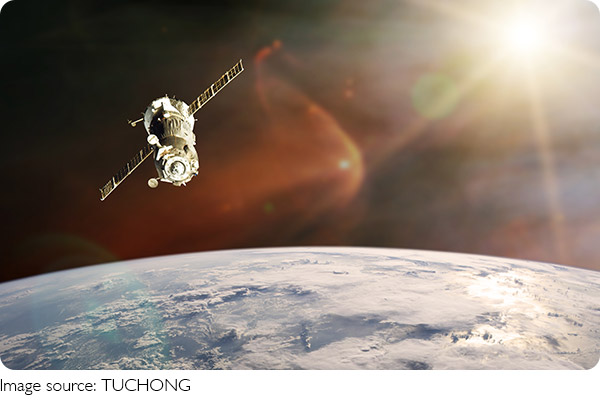Exploring Space Potential

As we look up at the night sky, we can't help but wonder: what's out there? Space exploration has always fascinated us, not just because it's mysterious, but because it pushes the limits of what we can achieve.
From landing on the Moon to reaching Mars, every step into space teaches us more about the universe—and about ourselves.
Reaching Beyond Our Planet
We've come a long way since the first satellite launch. Now, our goals are bigger than ever. We're aiming to explore deep space, beyond the Moon and Mars. This means developing advanced propulsion systems that can carry spacecraft further and faster. New technologies like ion drives and solar sails are already being tested to help us reach distant stars one day.
The Moon and Mars: Next Homes?
The Moon is our closest neighbor and a great place to start building a base. It offers a chance to test long-term living in space. Mars is more Earth-like and could even support human life in the future. Scientists are working on ways to create habitats, grow food, and extract water from the soil. These steps are key if we hope to stay there for months—or even years.
Unlocking Space Resources
Space isn’t just empty—it’s full of valuable resources. There’s clean solar energy, water ice on the Moon, and rare minerals on asteroids. These materials could help build and power space stations, and even reduce pressure on Earth’s own resources. Imagine getting building supplies or fuel directly from space—it’s not science fiction anymore, it's a real possibility.

The Rise of Space Tourism
Space tourism is no longer a dream. Companies like SpaceX and Blue Origin are working on ways for ordinary people to visit space, even just for a few minutes. This new industry could bring in money, support future missions, and inspire a whole new generation to explore. Of course, there are still challenges like high costs and safety, but things are moving fast.
Working Together Across Borders
Space exploration is too big for any one country. That’s why international cooperation is essential. We’re already seeing great examples, like the International Space Station, which has astronauts from around the world. Future missions to the Moon or Mars will likely be global efforts, combining talent and technology from many nations.
What Space Can Teach Us
Going into space isn’t just about rockets. It also helps us solve problems back on Earth. Satellite data improves weather forecasts, monitors climate change, and connects us through GPS. Medical tech developed for space helps doctors treat patients better. Even learning how to grow food on Mars could teach us how to farm in tough places on Earth.
Looking to the Future
The future of space is exciting—and wide open. We might find signs of life on another planet. We might build floating cities above Venus or mines on asteroids. The more we explore, the more questions we’ll have. But that’s what makes it amazing. Every mission brings us closer to answers—and to each other.
Let’s Dream Bigger, Together
So, Lykkers, what do you think—would you take a trip to space if you had the chance? The stars above us hold endless possibilities, and each step we take into the unknown brings new hope for the future. As we build, explore, and learn, we’re shaping a world where space is no longer out of reach. Let’s keep moving forward—because the next great adventure is waiting, and we’re in it together.
The Benefits of Space Exploration
Video by astris
-
 Find Your ScentStill Spraying Random Perfume? Here's How to Choose a Fragrance That Truly Matches You!
Find Your ScentStill Spraying Random Perfume? Here's How to Choose a Fragrance That Truly Matches You! -
 Battery Life CheckIs Your Car Battery Dying? Here’s How to Tell Before It’s Too Late!
Battery Life CheckIs Your Car Battery Dying? Here’s How to Tell Before It’s Too Late! -
 Triathlon Power PlayThink One Sport Is Tough? Wait Until You Try Swimming, Cycling AND Running — All in One Race!
Triathlon Power PlayThink One Sport Is Tough? Wait Until You Try Swimming, Cycling AND Running — All in One Race!